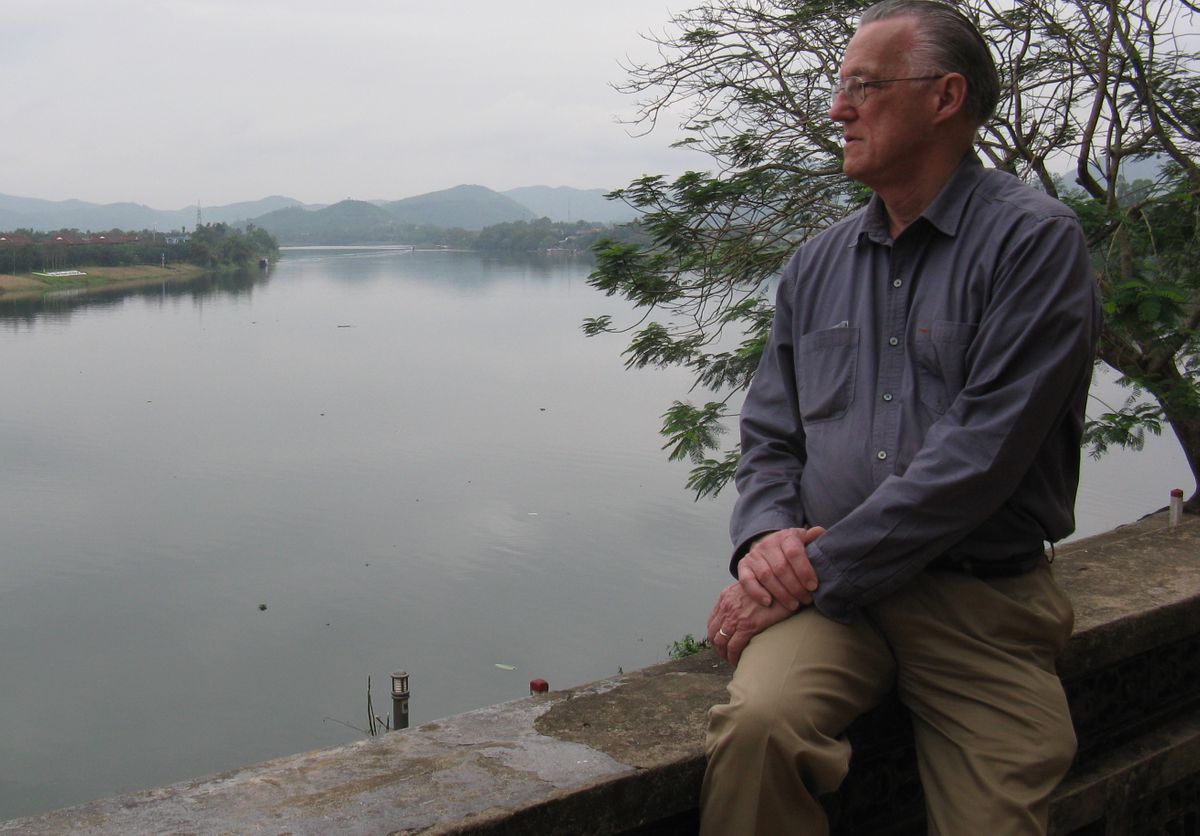As you may know, Gordon Lightfoot recently died. You may have memories of the Canadian singer/songwriter’s work. My memory is that he changed my life.
In 1971-72, as a US Foreign Service Officer, I was Advisor to the city of Hué, South Vietnam. I’d volunteered for Vietnam because being in a shooting war was one adventure I’d not yet had.
I was an adrenaline addict, drawn to war zones and high, dangerous mountains. I’d asked the State Department for the most dangerous job they had in Vietnam and they had definitely obliged. Hué, the site of the infamous Tet Offensive of 1968, was just south of the Demilitarized Zone between the two Vietnams and a constant target for North Vietnamese troops and Viet Cong guerillas. Some of my work involved dealing with Viet Cong undercover agents in the city. I was an easy target for snipers and car bombs. At first I loved it—the hair rising on the back of my neck, the shadows in the night… It was all fuel for a self-absorbed and shallow life.
But my most significant battle in Vietnam was an inner one. The war became more than just the source of the next biggest thrill—a killing field where my actions endangered more lives than my own, in a war which I soon came to regard as stupid and unwinnable. I was in Vietnam as a mercenary, paid in adrenaline instead of gold.
These realizations unnerved me and I began to question the moral emptiness of my life.
I didn’t know where to turn for answers. Then someone sent me a tape of a Gordon Lightfoot album and the first song on it was “Sit Down Young Stranger,” the plaintive questioning of another lost, rootless young man, seeking and not finding answers to huge waves of relentless self-questioning. I played it over and over. It sounded like Lightfoot had stepped into my soul.
I recount in my memoir, Quest, a lonely evening when I got drunk on Johnny Walker Black, listening again and again to Lightfoot’s words.
“They say you’ve been out wandrin’;
they say you traveled far.
Sit down young stranger,
and tell us who you are…
“There’s rockets in the meadows
and ships out on the sea.
The answer’s in the forest,
carved upon a tree:
John loves Mary—
does anyone love me?”
“Lightfoot was in the room,” I wrote in Quest, “talking straight at me. I moved my head and watched my shadow shift on the wall… The glass of whiskey slipped from my fingers and shattered on the tile floor. I curled up in the chair and turned out the light.”
In the spring of 1972, the North Vietnamese launched an all-out offensive against Hué, closing in on the city from the north and west. American combat troops had left the area and the handful of Americans still there were trapped. If any helicopter was sent to evacuate us, dozens of South Vietnamese would be scrambling for rescue too. We’d have to shoot them off the skids and they’d be shooting back.
But then the heavy cloud cover that had masked the North Vietnamese advance lifted and American carrier jets blasted the oncoming columns.
So I survived Vietnam.
It took years, but I went on to build a life that’s about meaning and service, not adrenaline.
I tell the story in Quest though it damned near did me in to tell the truth, the whole truth, and nothing but the truth. There were weeks when I had to stop writing altogether for the pain of it. I kept going in the belief that telling my story might help others gain the focus needed to build meaningful lives. I titled the first draft, Sit Down Young Stranger, and Lightfoot gave me permission to use those words and to print the lyrics that had helped me change my life.
May you rest in peace, Gordon Lightfoot, and thank you again.
Quest—Risk, Adventure and the Search for Meaning might help you find your way forward Give this 90-second trailer a look and see what you think.

